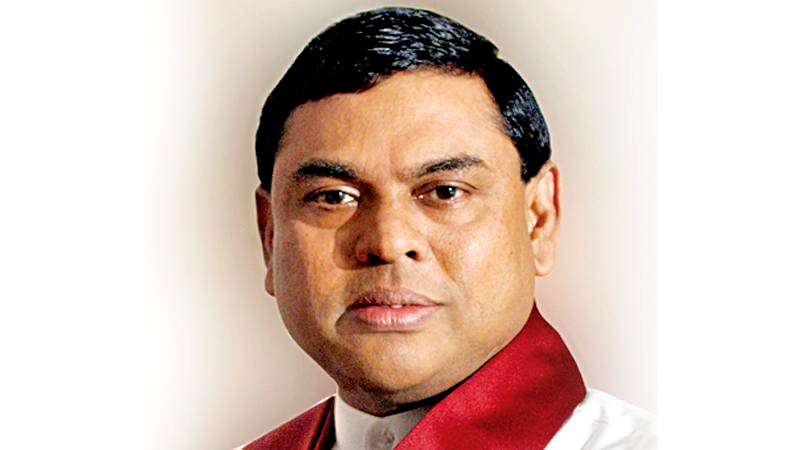Former Minister Basil Rajapaksa and three others who had been indicted in the Colombo High Court had made a request through their lawyers to acquit them from the Divi Neguma case, without calling defence evidence, on the basis that the prosecution evidence has failed to establish the commission of the offence charges against accused in the indictment.
|
Travel ban lifted The Colombo High Court yesterday ordered to lift the travel ban imposed on former Economic Development Minister Basil Rajapaksa, former Secretary to the Ministry of Economic Development Dr. Nihal Jayasinghe, former Director General of Divi Neguma Department Kithsiri Ranawaka and former Deputy Director General of Divi Neguma Department Bandula Tilllekasiri, taking into consideration the fact that they have adhered with the bail conditions over the past four and a half years. |
The Attorney General had filed indictments against former Minister Basil Rajapaksa, former Secretary to the Ministry of Economic Development Dr. Nihal Jayasinghe, former Director General of Divi Neguma Department Kithsiri Ranawaka and former Deputy Director General of Divi Neguma Department Bandula Tilllekasiri in the Colombo High Court for allegedly committing criminal breach of trust with regard to Rs.2,992 million while being utilised for the ‘Isurumath Nivahana’ program during the January-2015 presidential election.
President’s Counsel Gamini Marapana with Navin Marapana PC and Jayantha Weerasinghe PC appearing for the defence had filed this application before High Court Judge R. Gurusinghe in terms of Section 200 (1) of the Code of Criminal Procedure requesting the Court to record a verdict of acquittal, on behalf of the 1st and 4th accused, in view of the fact that the evidence led by the Prosecution totally failed to establish the commission of the offence charged against the accused in the indictment.
The Defence Counsel argued that the prosecution has not produced any evidence or documents to show as to how the several banks, from which funds, amounting to Rs.2,992 million utilised for the ‘Isurumath Nivahana’ project, had been drawn, and had been accounted for in their respective Ledgers.
The defence further argued that key prosecution witnesses including the onetime Secretary to the Ministry of Finance, Dr. P.B. Jayasundera who testified, agreed and admitted, that the money in the Accounts of the Divineguma Beneficiaries in the concerned banks, that was utilised for the ‘Isurumath Nivahana project’ belonged to the Divineguma Beneficiaries and did not constitute “Public Property”.
The first witness for the prosecution, Iddamalgoda Deshapriya, Nadeeka Sanjeewani, Assistant Director of Social Development unit of the said Department, testifying under cross examination, clearly stated that every single cent, out of the Rs.2,992 million spent on the said project, went to 1,197,111 Divineguma Beneficiaries and that she never heard of any allegation that even a single cent was taken by any of the accused, the Defence Counsel said.
The Defence Counsel submitted to Court that after the political change which occurred after the 2015 Presidential election there was a clear and structured mechanism, by the establishment of a Anti-Corruption Secretariat of which the first complainant was the Director, and the establishment of the FCID, mainly to ‘persecute’ the members of the Rajapaksa family which included the first Accused in this case. It is common knowledge that it was the aim of those in power during that period to have as many of the members of the Rajapaksa family remanded in order to gain political mileage.
The most abused piece of legislation that was used to achieve such malicious political goals, was the Offences Against Public Property Act. In the present case also the
Accused were remanded for nearly two months, purely because the magical words “Public Property” was used in the ‘B’ reports. However, when this case went to Trial almost every single Prosecution witness categorically admitted that the funds utilised were not “Public Property”, the Defence Counsel further submitted.


